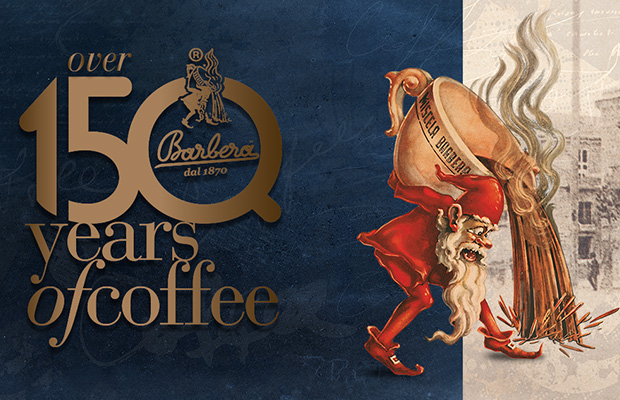
2-4 Workdays Article No. 1595
Aroma(s) : Chocolaty, Nutty
Article No. 1595

2-4 Workdays Article No. 1596
Aroma(s) : Chocolaty, Nutty
Article No. 1596

2-4 Workdays Article No. 1597
Aroma(s) : Nutty, Malty
Article No. 1597

2-4 Workdays Article No. 1602
Aroma(s) : Chocolaty, Nutty
Article No. 1602

2-4 Workdays Article No. 1665
Aroma(s) : Chocolaty, Floral
Article No. 1665

2-4 Workdays Article No. 1599
Aroma(s) : Chocolaty, Nutty
Article No. 1599

2-4 Workdays Article No. 1609
Aroma(s) : Chocolaty, Nutty
Article No. 1609

2-4 Workdays Article No. 1600
Aroma(s) : Nutty, Malty
Article No. 1600

2-4 Workdays Article No. 10851
Aroma(s) : Chocolaty
Article No. 10851

2-4 Workdays Article No. 10730
Aroma(s) : Chocolaty, Nutty
Article No. 10730

2-4 Workdays Article No. 1601
Aroma(s) : Nutty, Fruity
Article No. 1601

2-4 Workdays Article No. 10729
Aroma(s) : Chocolaty, Nutty
Article No. 10729

2-4 Workdays Article No. 1738
Aroma(s) : Chocolaty, Fruity
Article No. 1738

2-4 Workdays Article No. 1739
Aroma(s) : Chocolaty, Nutty
Article No. 1739

2-4 Workdays Article No. 10036
Article No. 10036

Unavailable Article No. 1663
Aroma(s) : Chocolaty, Nutty
Article No. 1663

Unavailable Article No. 1950
Aroma(s) : Nutty, Malty
Article No. 1950

Unavailable Article No. 1943
Aroma(s) : Chocolaty, Nutty
Article No. 1943
Barbera Caffè
Elio Barbera (Enrico's son) - Enrico Barbera - Anne Duhre - Justin Bahner
In 1870, Domenico Barbera, originally from Piedmont, began roasting coffee with a small machine in the alleys of Messina, Sicily.
The "magician," as his customers affectionately called him, continued to expand his small business. He later purchased a new coffee roasting machine, mysteriously named "Tornado." From there, the Barbera family proudly roasted up to 30 kg of coffee at a time.
In 1903, after Domenico's passing, his son Antonio, the second generation, took over the family business. Antonio maintained both the family tradition and the development and evolution of the roasting process.
The quality of the coffee, financial management, and marketing of the products were just a few of the many factors to consider in making Café Barbera a constant success.
These efforts were crowned with success: between the two world wars, the "magician's" coffee became the most consumed in southern Italy. In 1947, Antonio's son, Letterio, opened a new roasting workshop in Naples. It was a risky move, as the city already had a strong coffee culture and many well-established, experienced roasters. However, the decision to take this risk paid off, as the business built locally was a complete success. In 1951, Letterio opened his first branch in Milan. Thanks to a dense network of salespeople, the magical coffee would soon be consumed throughout the country.
Quality control
In the 1950s, the era of research and development began. New roasting machines, quality control, and the development of new products were among the challenges the brand had to face. When Carmelo, Letterio's son, returned from the United States as a chemist in the food industry, he created Italy's first coffee laboratory to scientifically improve and develop the various stages of production.
This was a significant breakthrough that made a difference. In collaboration with the Specialty Coffee Association (SCA), Barbera was the first coffee laboratory in Italy to appear in prestigious scientific journals. The fifth generation, under the leadership of Enrico, also ensured that the brand developed and became known internationally.
- In 1999, Barbera acquired the "Tris Caffè" brand to become increasingly competitive in the national market.
- In 2002, the first Barbera coffee card was launched, aiming to create 18 different blends.
- In 2003, the first Barbera coffee shop was opened in Dubai.
Café Barbera is now a large company that has won numerous awards and accolades for the excellent quality of its products.
Renewable Energy for the Caffè Barbera
 |
Caffè Barbera, the Neapolitan roasting company founded in 1870, has trusted SolarSicily to increase its contribution to sustainability and adopt "green" production for all its products.
The new photovoltaic system was installed on the roof of the factory near Naples, Italy. This was an important step toward sustainability for a company already certified with ISO 9001.
The photovoltaic system chosen by Caffè Barbera consists of 180 panels (450W) from the LONGI brand, 107 optimizers, 2 hybrid inverters (7 + 7 kWh), and a SolarEdge inverter (66.6 kWh). This system ensures the production of 125,200 kWh (125.2 MWh) of renewable energy per year, which is equivalent to 32.05 tons of CO2— or 1,472 trees planted. Additionally, it has a 49% self-consumption rate (61.5 MWh), allowing more than 63.71 MWh of renewable energy to be exported to the grid.
Thanks to this installation, Caffè Barbera is able to meet all of its production needs, transforming the company into a truly eco-sustainable entity. It uses energy from its own renewable, clean energy source to produce the incomparable premium blends of the "Magician of Coffee," which are now exported to over 65 countries worldwide.
 |
 |

 Today, Caffè Barbera coffee has become one of the most widely consumed coffees in southern Italy, and rightly so. In 1870, Domenico Barbera began roasting coffee in the streets of Messina using a small machine. The oldest roasting workshop in southern Italy still belongs to the family. The little coffee magician is the symbol of this traditional society. That's why the brand's most popular blend is called Barbera Mago (translated from Italian as The Magician).
Today, Caffè Barbera coffee has become one of the most widely consumed coffees in southern Italy, and rightly so. In 1870, Domenico Barbera began roasting coffee in the streets of Messina using a small machine. The oldest roasting workshop in southern Italy still belongs to the family. The little coffee magician is the symbol of this traditional society. That's why the brand's most popular blend is called Barbera Mago (translated from Italian as The Magician).




